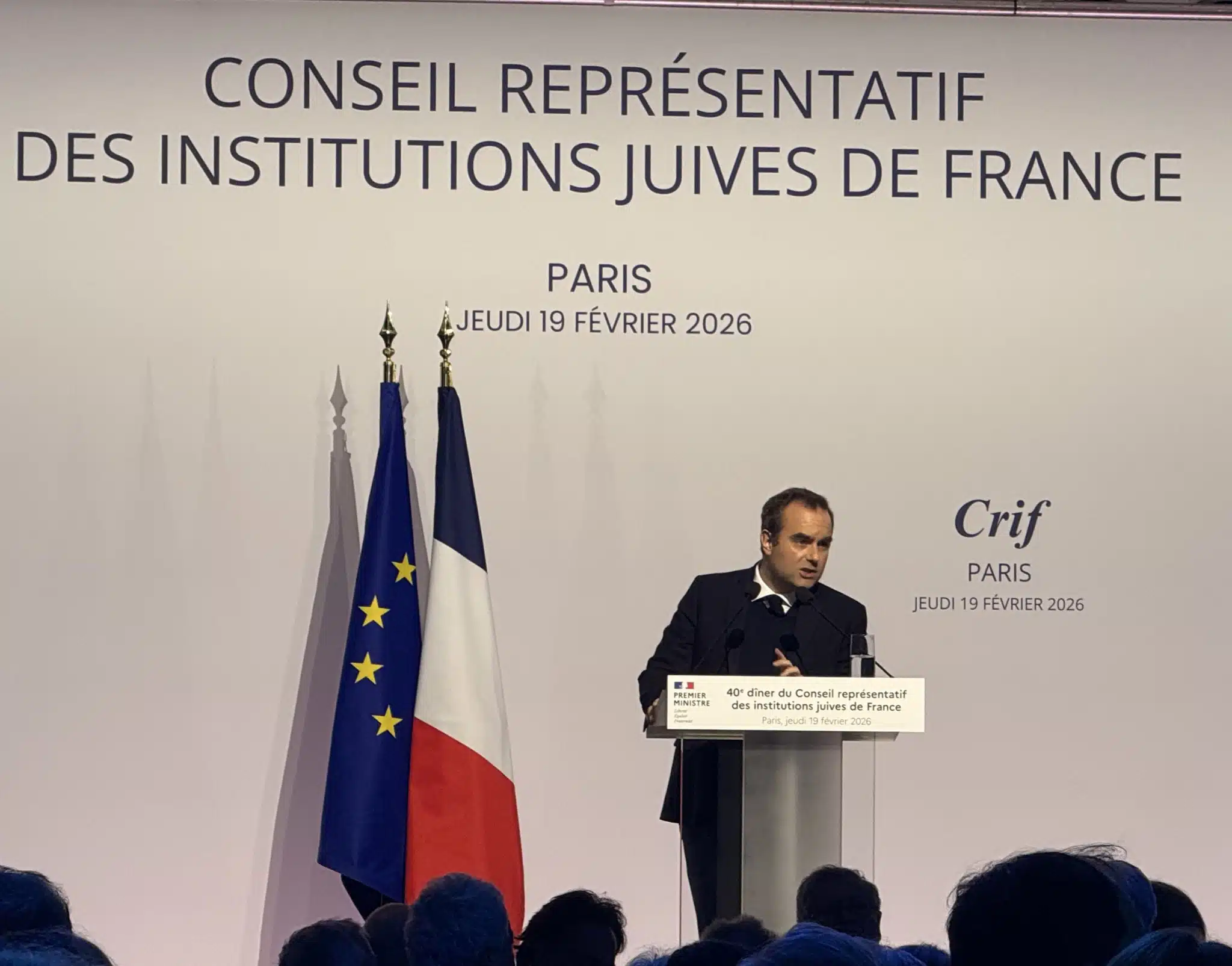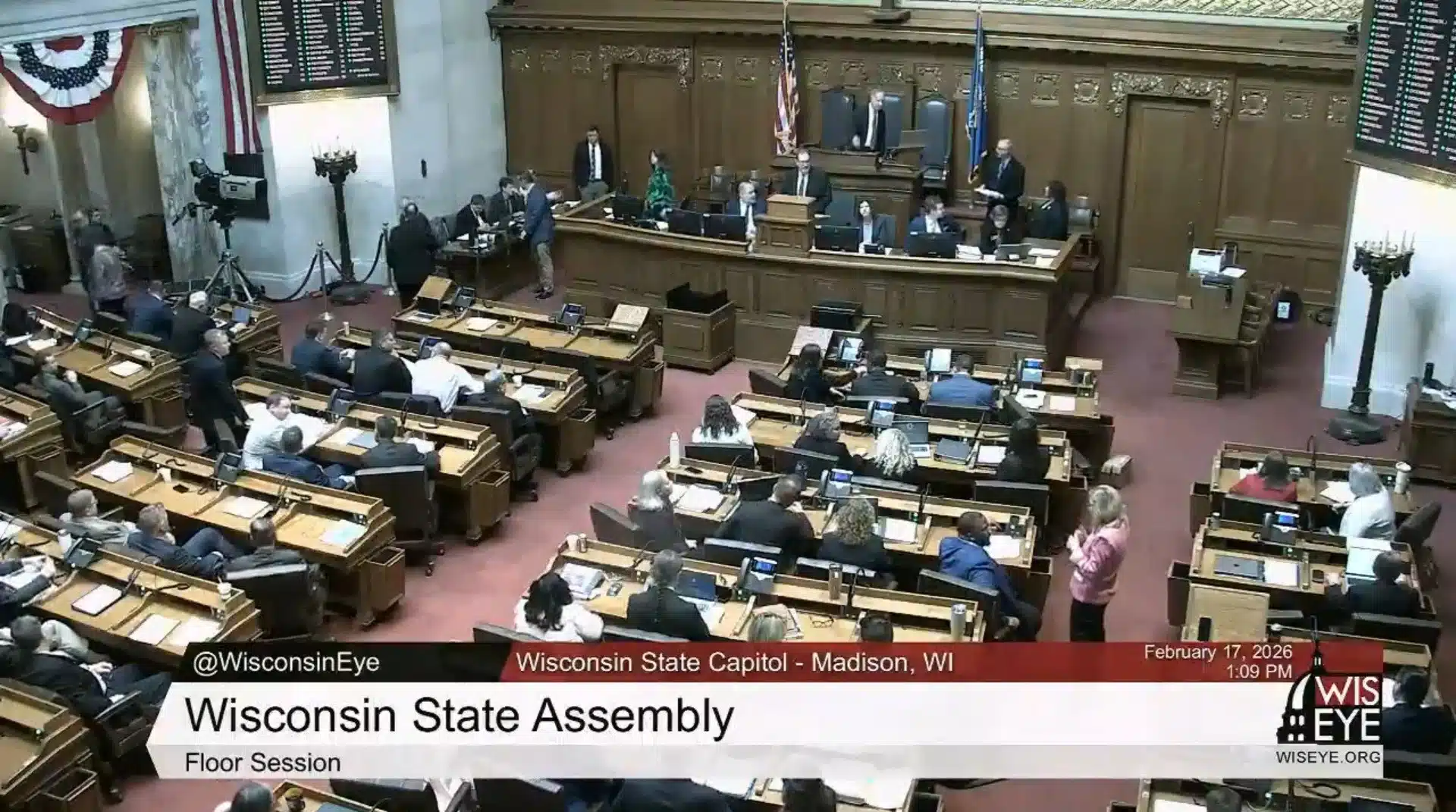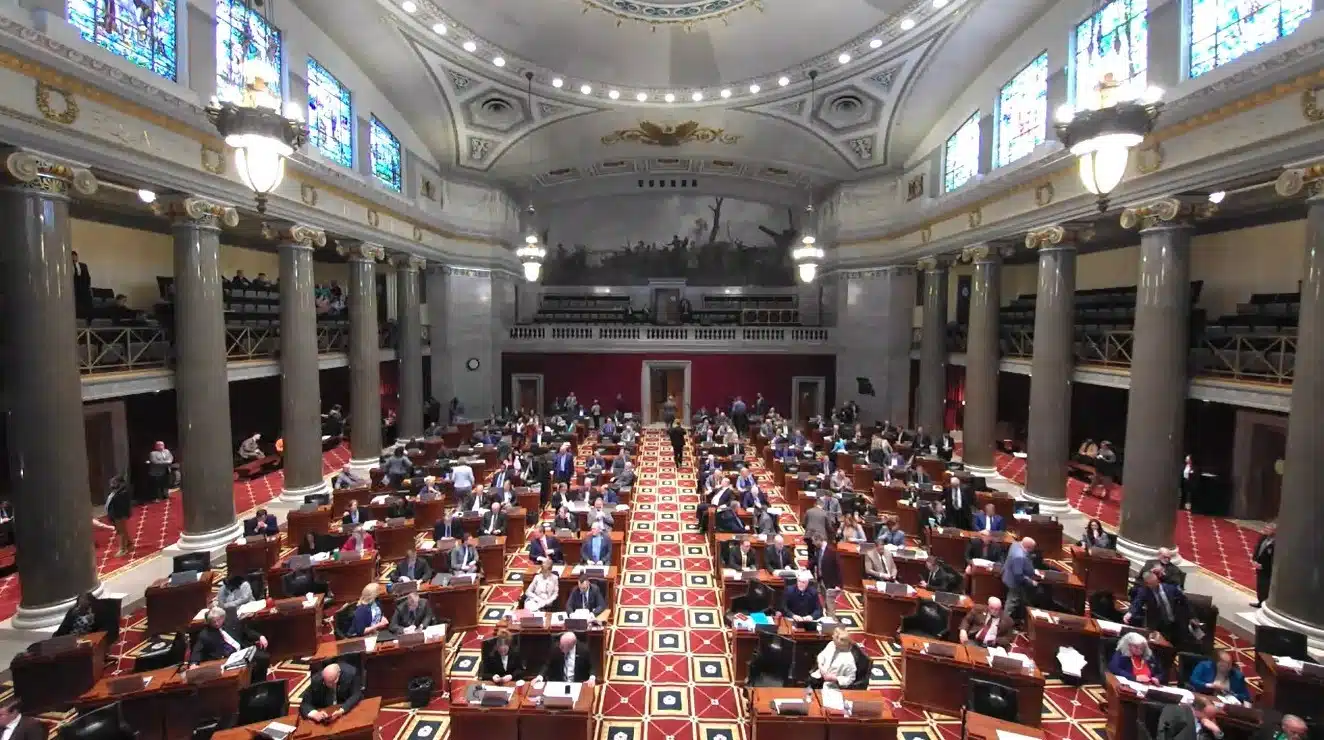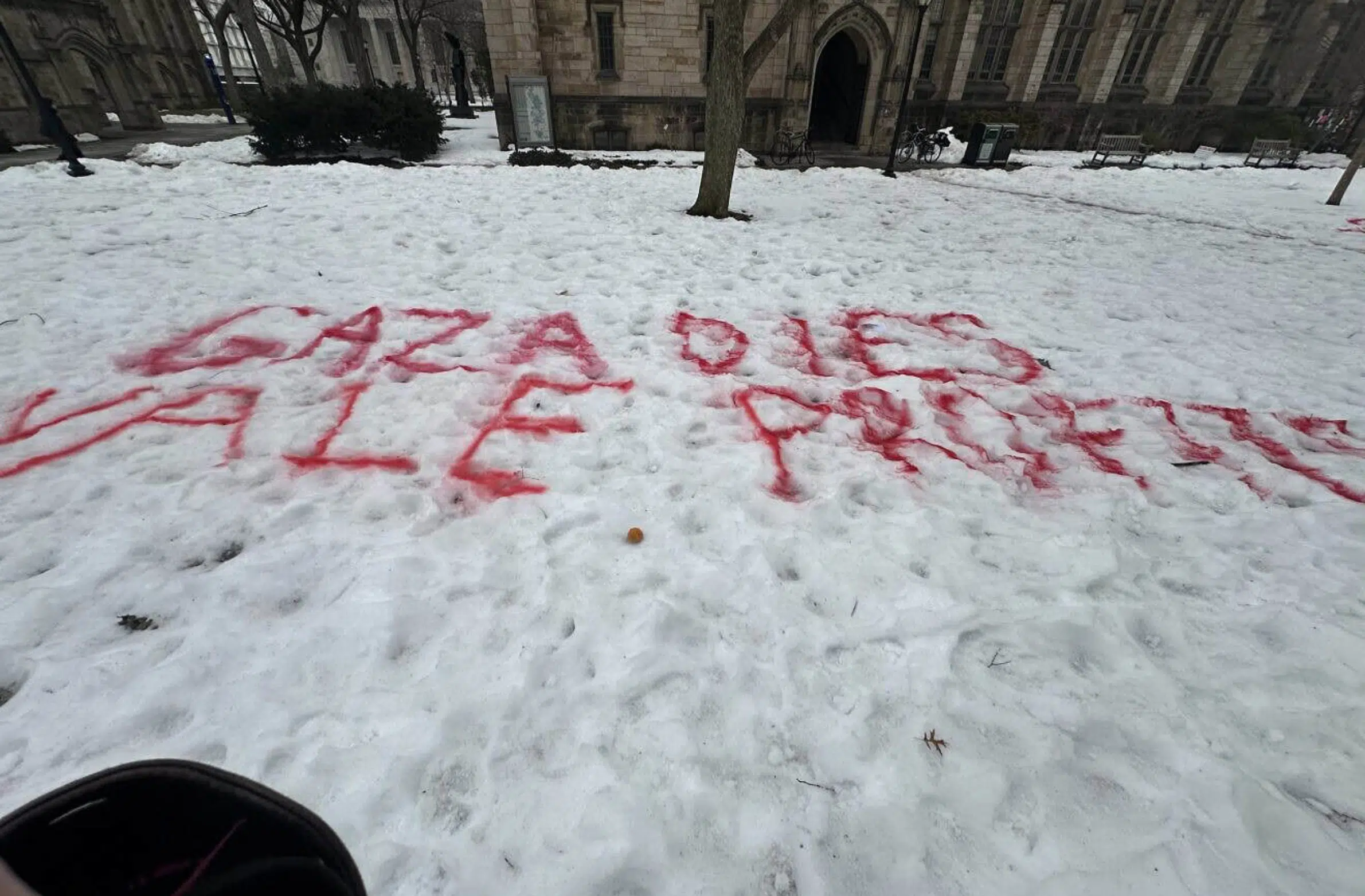|
Getting your Trinity Audio player ready...
|
The Combat Antisemitism Movement (CAM) participated in a special antisemitism briefing for lawmakers and staff at the Wisconsin State Capitol in Madison on Wednesday.
President of U.S. Affairs Alyza Lewin and Public Affairs Officer Natalie Sanandaji spoke on behalf of CAM, offering insights into the rise of antisemitism in America today and highlighting the need for state-level action to counter it.
The briefing was held following the recent introduction in the Wisconsin State Assembly of a new bill — AB 446 — that would adopt the International Holocaust Remembrance Alliance (IHRA) Working Definition of Antisemitism into state statute and use it to evaluate discriminatory intent and enhanced criminal penalties.
“While antisemitism is one of society’s oldest hatred, it still remains difficult to recognize because of how often it morphs,” Lewin said. “What we see today is Jews in Wisconsin are being targeted based on their Jewishness. Jews are defined by their peoplehood, which is rooted in the Land of Israel. By feeling that connection, they are now being demonized for the actions of Israel and losing their peer connections and relationships over this.”
“The IHRA definition on its own does not prohibit or condemn speech,” Lewin emphasized. “It is trying to help people understand what contemporary antisemitism looks like.”
Sanandaji — a survivor of the Nova music festival massacre in southern Israel — shared her traumatic story and underscored its relevance to the fight against antisemitism, which has surged globally in the two years since October 7th.
“When hate is tolerated against one group, it never stops there,” Sanandaji pointed out. “I’m not here to talk politics. I’m here to talk about the human cost of indifference, and to ask each of you, as leaders, to pay attention.”
“Use your voices,” she urged. “Condemn hate wherever it appears, whether it’s in our streets, our universities, or our own parties. Help ensure that Jewish students can walk across campus without fear, that Americans of every background can feel safe expressing who they are. Because ‘Never Again’ isn’t just a slogan. It’s a responsibility, one that belongs to all of us.”
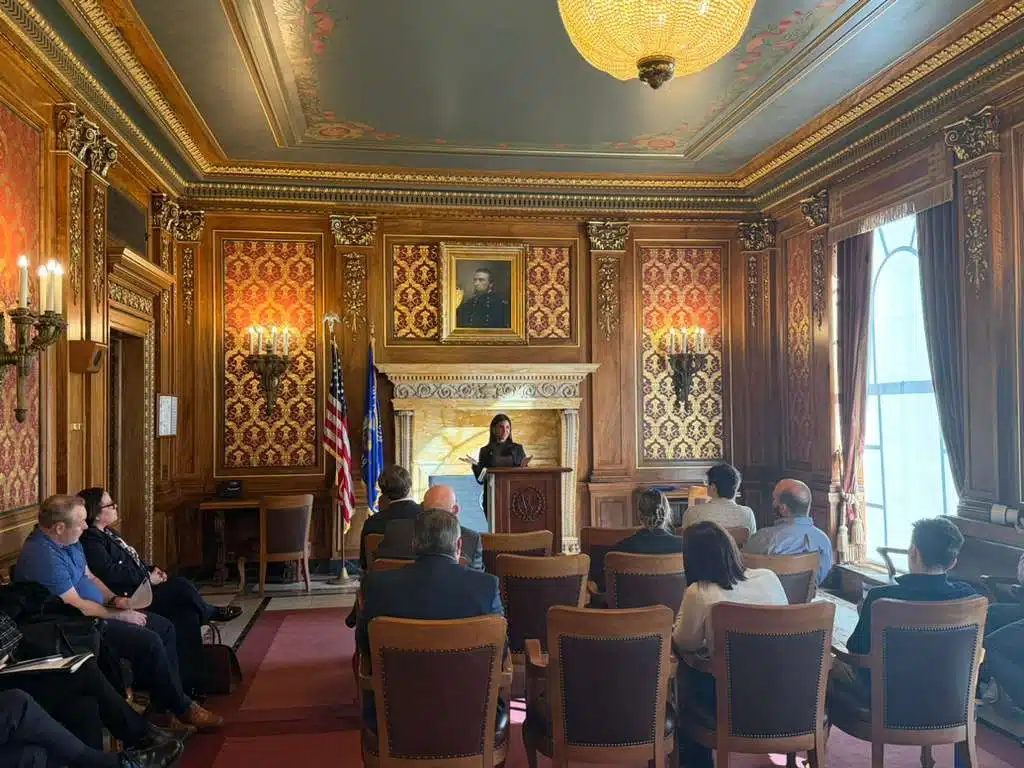
The briefing also featured a presentation by Miriam Rosenzweig, President and CEO of the Milwaukee Jewish Federation.
“The federation did a survey, and 46% of Wisconsin Jews didn’t walk into a Jewish building because they were afraid of their safety,” Rosenzweig said. “One in four experienced antisemitism directly. We need this bill [AB 446] to define what antisemitism is, to eliminate any confusion.”
“We want to empower schools, administrators, and institutions to understand what is and isn’t antisemitism,” she added.
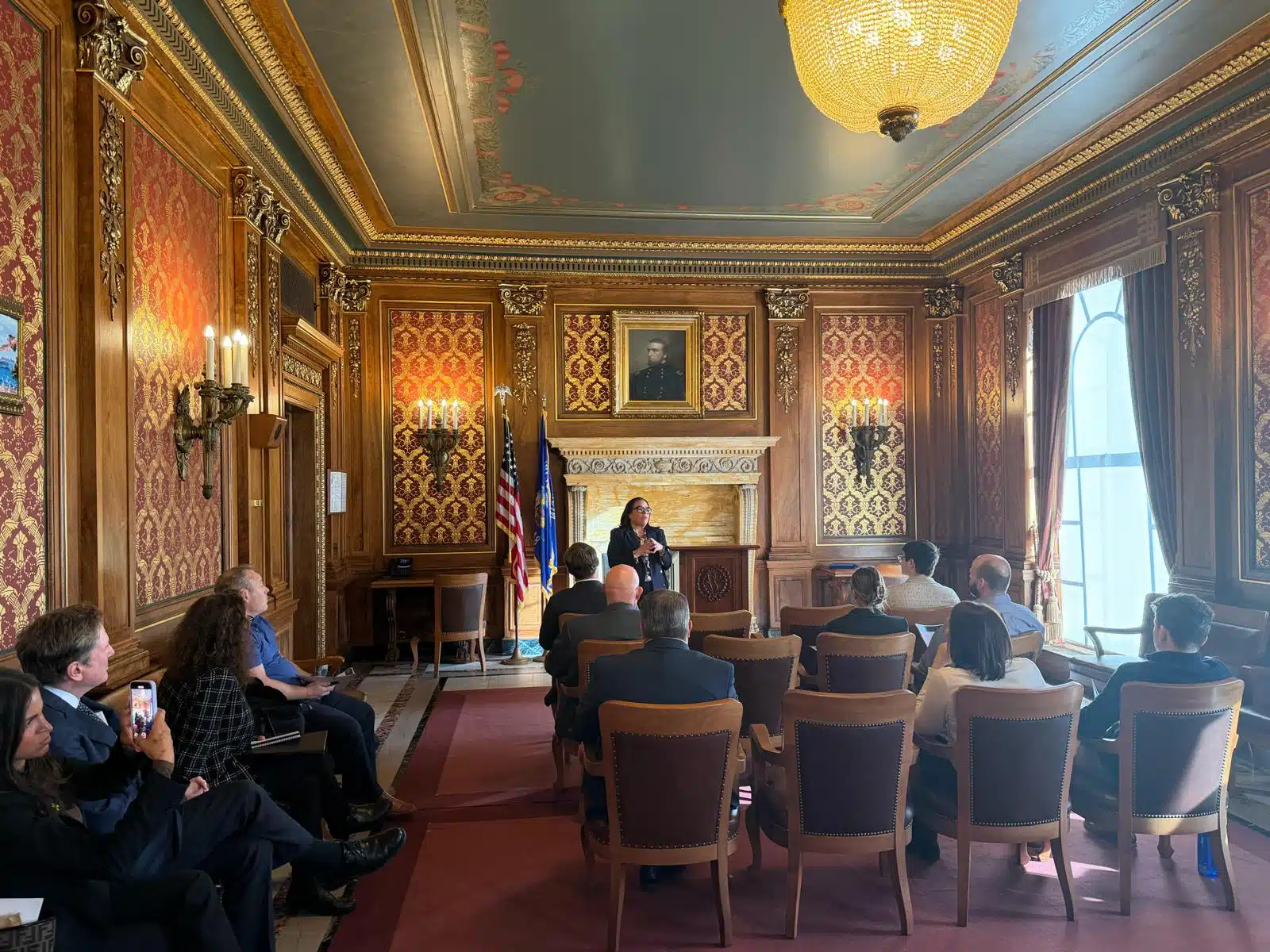
State Representative Ron Tusler said, “People should treat the Jewish people in the United States and Wisconsin in a fair way and something must be done.”
Referring to adoption of the IHRA antisemitism definition, Tusler noted, “Other states have done this and we can become the 38th state to do so.”
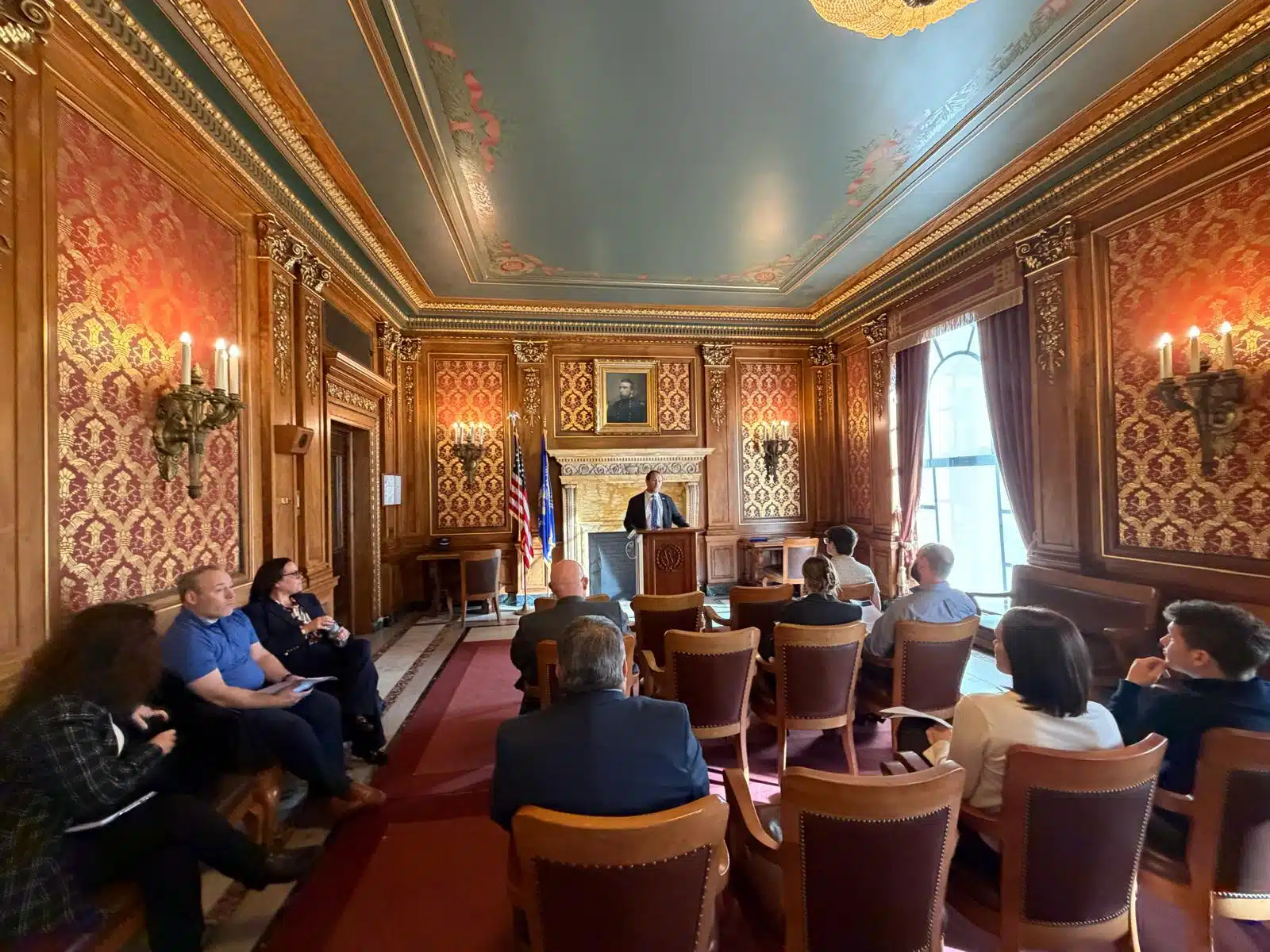
Other briefing participants included State Senator Patrick Testin and State Representative Lisa Subeck.
A total of 37 U.S. states have adopted the IHRA antisemitism definition, according to a database compiled by the Antisemitism Research Center (ARC) by CAM.
Over the past year, CAM has led an organized effort to engage and educate state legislators across the U.S. on antisemitism-related issues and potential policy remedies, such as the Wisconsin bill.
Legislative initiatives have also been put forth in Arkansas, Kansas, Kentucky, Missouri, Nebraska, Oklahoma, and Tennessee, and five of these states — Arkansas, Kansas, Kentucky, Oklahoma, and Tennessee — have seen new laws enacted since the start of April.
At the end of June, lawmakers and executive officials from 17 states convened in Kansas City, Missouri, for the first-ever CAM-organized State Leadership Summit on Antisemitism.


